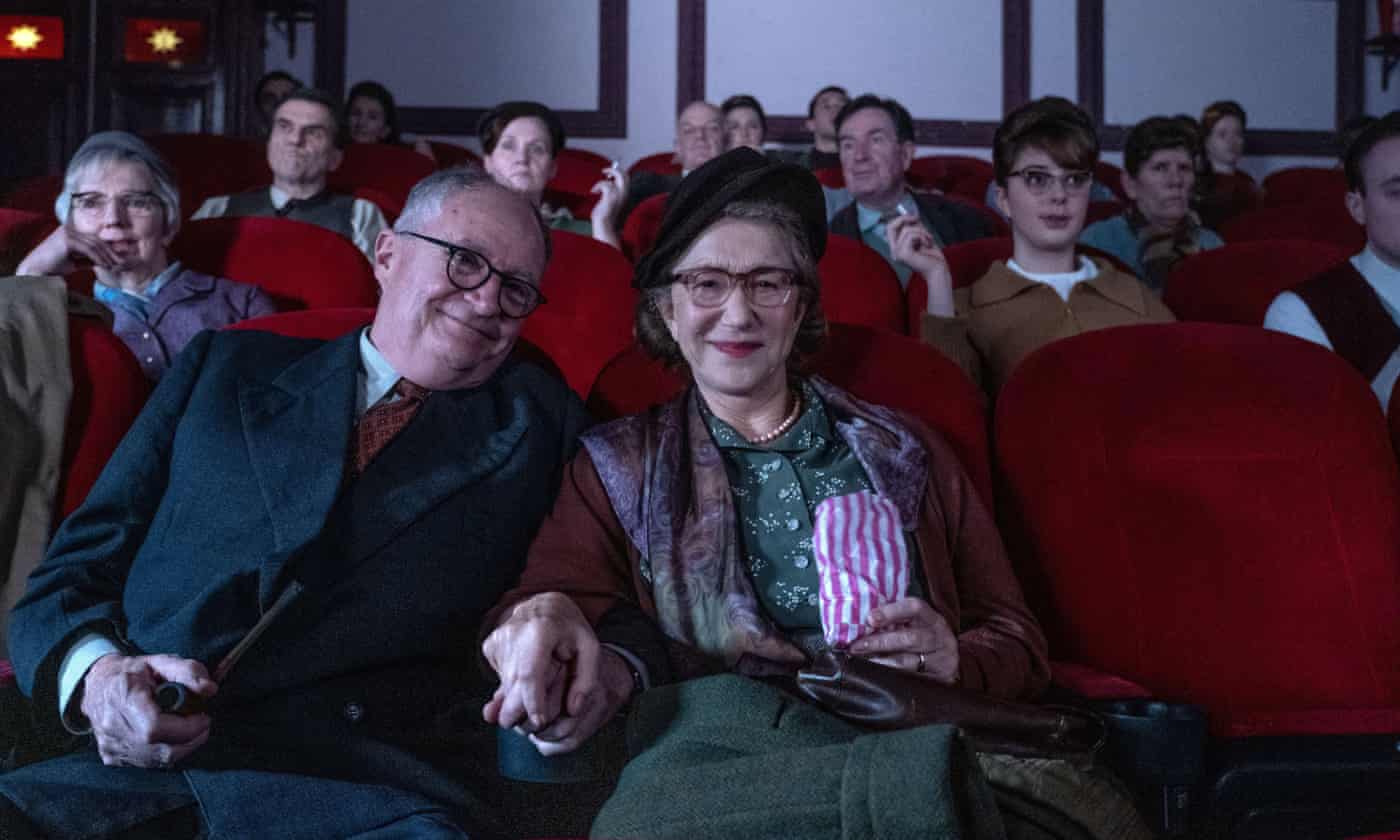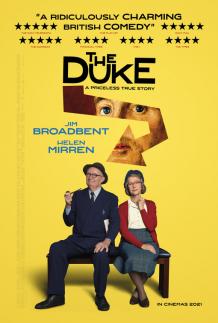BACK AT THE HYLAND BY POPULAR DEMAND!
In 1961, Kempton Bunton, a 60-year old taxi driver, stole Goya's portrait of the Duke of Wellington from the National Gallery in London. It was the first (and remains the only) theft in the Gallery's history. Kempton sent ransom notes saying that he would return the painting on condition that the government invested more in care for the elderly -- he had long campaigned for pensioners to receive free television. What happened next became the stuff of legend. Only 50 years later did the full story emerge -- Kempton had spun a web of lies. The only truth was that he was a good man, determined to change the world and save his marriage -- how and why he used the Duke to achieve that is a wonderfully uplifting tale.
The Duke - Film Review
Mark Kermode, Observer Film Critic
As with so many of cinema’s most successful practitioners, the South Africa-born British film-maker Roger Michell, who died last September aged 65, was not an “auteur” with a singular distinctive style. On the contrary, he was a versatile craftsman who could turn his hand to a range of genres with ease. From the classic Richard Curtis romcom Notting Hill to the American thriller Changing Lanes and the deliciously twisty Daphne du Maurier dark romance My Cousin Rachel, Michell instinctively understood the differing demands of each story he was telling. He adapted Hanif Kureishi’s The Buddha of Suburbia for TV with great success, gave Anne Reid her finest role in the taboo-breaking, Kureishi-scripted drama The Mother, and directed a sorely underrated screen adaptation of Ian McEwan’s Enduring Love, the bravura opening movement of which has haunted me for years.
Michell’s documentary about the Queen, Elizabeth: A Portrait in Parts, comes to cinemas and streaming in June. Meanwhile, his last dramatic feature film, The Duke, is finally getting a belated cinema release following Covid-related delays. It’s an extremely likable crime-caper comedy that owes a tonal debt to such Charles Crichton classics as Hue and Cry and The Lavender Hill Mob – good-natured British romps that helped to turn Ealing Studios into one of the nation’s most revered institutions. The fact that The Duke is based on a true story just accentuates its sense of homegrown eccentricity.

‘A winning blend of fearlessness and foolishness’: Jim Broadbent as Kempton Bunton, with Helen Mirren, ‘turning exasperation into an artform’, in The Duke. Photograph: Alamy
The film is jovially neutral fare, preferring to frame its story as an unashamedly old-fashioned underdog tale Jim Broadbent, who cut an impressively tragicomic figure in Michell’s bittersweet old-age/New Wave charmer Le Week-end (2013), plays Kempton Bunton, a real-life figure who achieved notoriety in the mid-60s after the theft of Goya’s portrait of the Duke of Wellington from the National Gallery. We meet Bunton in the dock in London, pleading not guilty to pilfering said painting, of which he was never a fan (“It’s not very good, is it?”). From here we spiral back to Newcastle in the spring of 1961, where the retired bus driver and self-proclaimed Robin Hood figure has felt the long arm of the law for refusing to pay his TV licence fee. Outraged that public money is being spent to keep a “half-baked portrait by some Spanish drunk” in the UK, habitual soap-boxer Bunton declares that the money would be better spent on “war widows and pensioners… for the greater good of mankind”.
When the Goya goes awol, the authorities suspect highly organised international criminals, probably including “a trained commando” (the 1962 Bond film Dr No fancifully placed the painting in its villain’s lair). But when Kempton’s long-suffering wife, Dorothy (Helen Mirren), finds “a stolen masterpiece in me wardrobe!”, it appears that her husband has outdone himself in his quest to battle social injustice at large while driving his nearest and dearest to distraction at home.
Bunton’s stranger-than-fiction story has been dramatised before, most notably in David Spicer’s 2015 BBC radio play Kempton and the Duke. The well-crafted script for Michell’s film is co-written by Richard Bean and Clive Coleman, the latter of whom served as legal correspondent for the BBC. All of which makes it doubly ironic that a central theme of The Duke is Bunton’s staunch BBC refusenik status and his campaign against the licence fee for pensioners, something that has become all the more timely since the film premiered at Venice in September 2020. In last week’s Observer, Broadbent noted that “now Kempton would be defending the BBC to the hilt against these wicked people trying to dismantle it by foul means. He’d have switched sides.”
As for The Duke, it’s jovially neutral fare, preferring to frame its story as an unashamedly old-fashioned underdog tale – an absurdist struggle of the little man against monolithic bureaucracy. Broadbent is terrific in the lead, investing his bumbling antihero with a winning blend of fearlessness and foolishness even as the film tips from social satire into theatrical silliness. Plaudits to Mirren, too, for turning exasperation into an art form, ensuring that while The Duke is never quite as surprising as the case that inspired it, it nonetheless retains a much-needed astringent streak.



